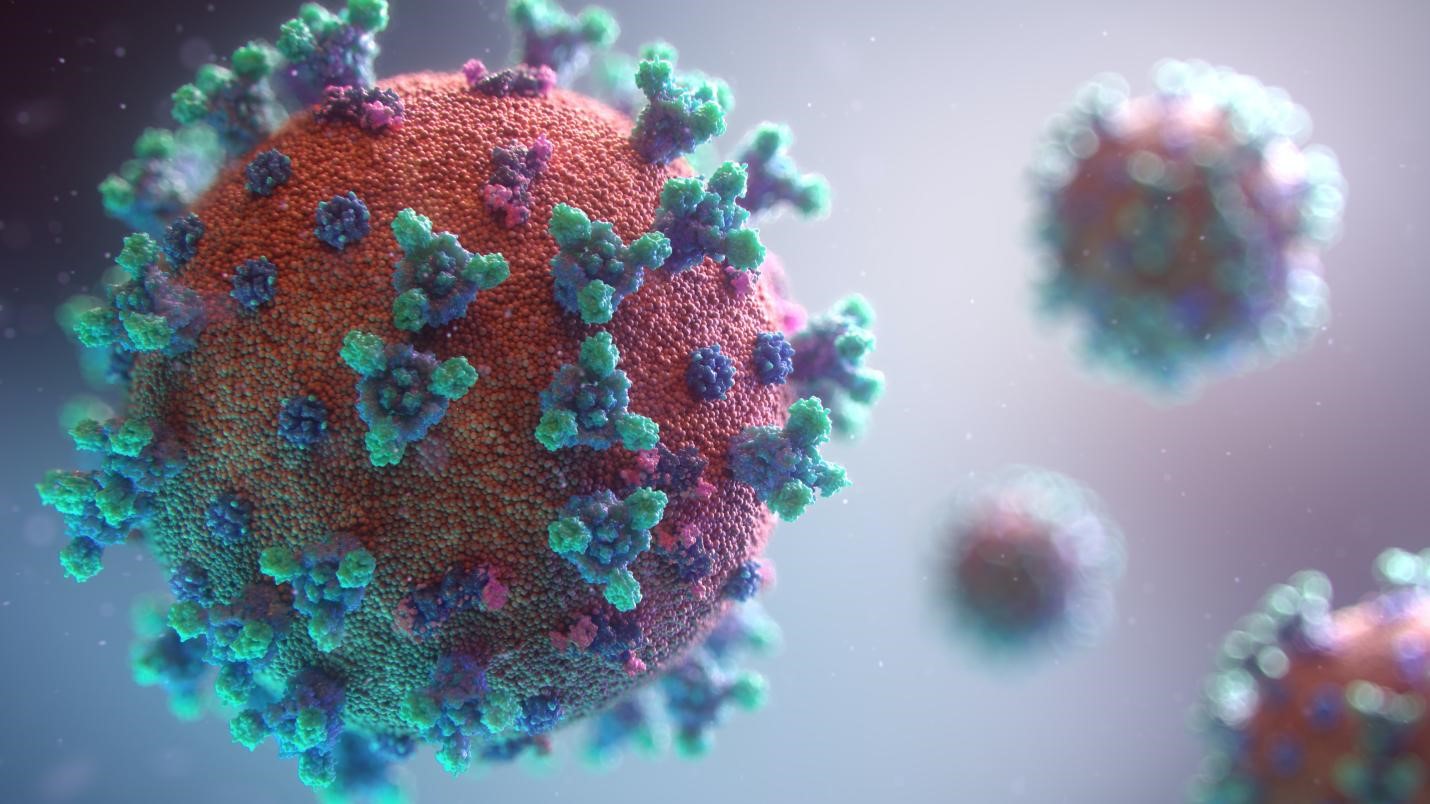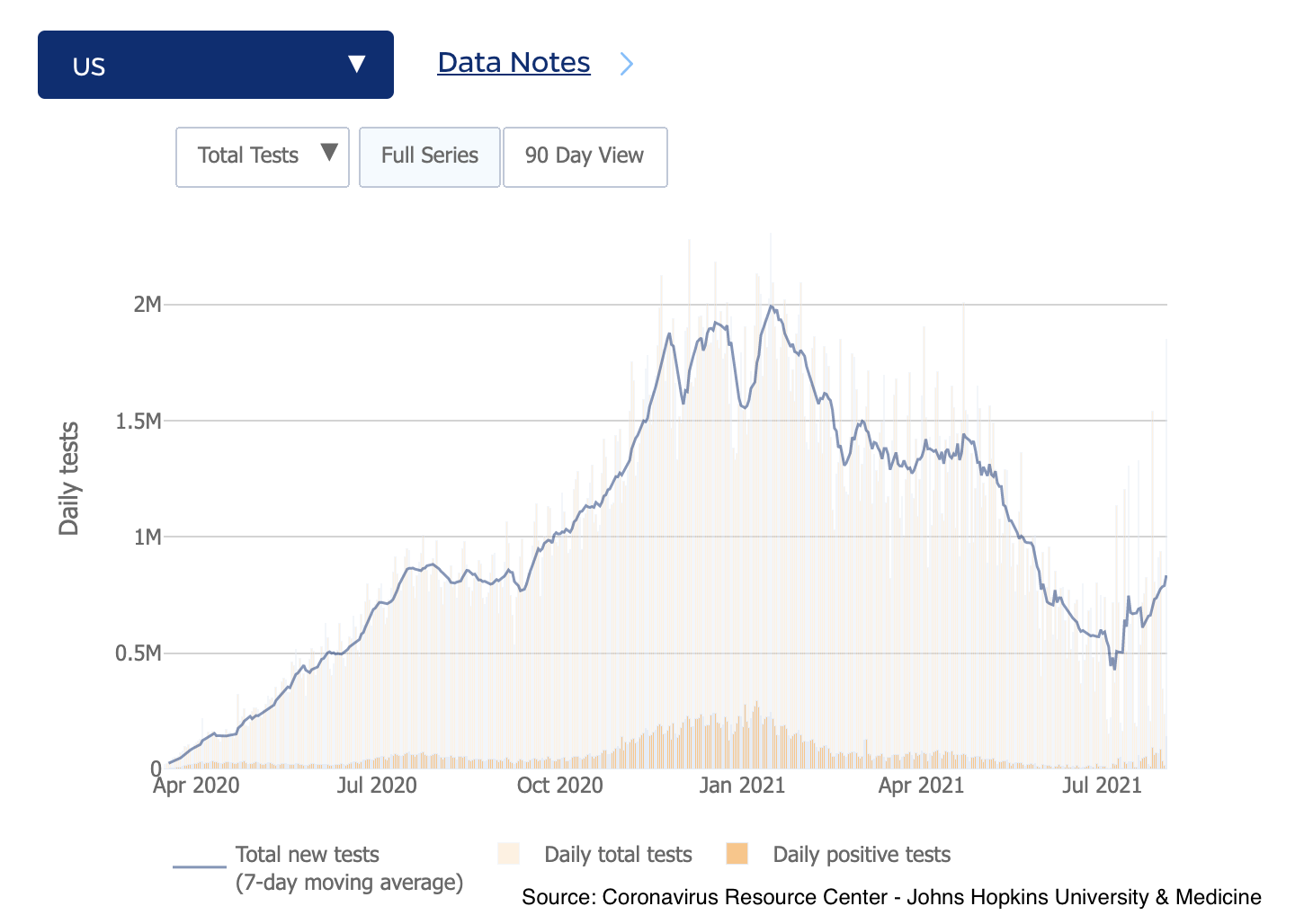Testing is crucial to help treat, isolate or hospitalize people who are infected with SARS-CoV-2 (the virus that causes the coronavirus disease, or COVID-19). COVID-19 tests are also important to mitigate the spread and contagiousness of the disease and its variants.
The number of tests performed in each country also defines the counts of confirmed cases and the related measures adopted for containment. Only once tested, an individual suspected of having contracted the virus can be considered a confirmed case of COVID-19. Without testing there is no reliable data to understand the spread of the pandemic and properly monitor the outbreak of new waves of Coronavirus.
As of March 2021, the number of COVID-19 tests performed in the US was showing a decline, dropping by a third compared to the two months before. The reasons behind this trend were many, including a lower perceived level of severity of COVID-19 and slow but steady vaccination campaigns. However, as of July 31st, the number of daily tests performed is rising again, as the B.1.617.2 (Delta) variant is currently circulating in the United States.
The need for testing continues to be important not only to confirm the number of COVID-19 cases but also to monitor the spread of these new variants. Not to mention that, vaccines reduce risk of infection after 14-21 days but do not eliminate it. There is still a minimal risk to contract COVID-19 even after vaccination.
In this article, we will assess the importance of COVID-19 testing as correlated to the recent trends in the fight against the epidemic, including a growing number of vaccinated people.
Do vaccinated people still need to take a COVID-19 test?
Yes, testing is still recommended, even after vaccination. Although the risk that fully vaccinated people could become infected with COVID-19 is low, the efficacy of vaccines is maximized only after receiving both shots in two-dose series or two weeks after a single-dose vaccine.
In particular, in the United States, individuals are considered fully vaccinated:
● 2 weeks or later after their second dose in a 2-dose series, such as the Pfizer or Moderna vaccines, or
● 2 weeks or later after a single-dose vaccine, such as Johnson & Johnson’s Janssen vaccine
Currently authorized vaccines in the United States are highly effective at protecting vaccinated people against symptomatic and severe COVID-19. A growing body of evidence indicates that people fully vaccinated are less likely than unvaccinated individuals to contract COVID-19. In case of a breakthrough infection, fully vaccinated individuals are more likely to experience mild or no COVID-19 symptoms. Overall, there is a substantially reduced risk of severe illness and death from COVID-19 compared with unvaccinated people. However, preliminary evidence also suggests that fully vaccinated people who do become infected with the Delta variant can spread the virus to others.
A recent guidance from the U.S. Centers for Disease Control and Prevention states that fully vaccinated people can participate in many of the activities they did before the pandemic, resume domestic travel, refrain from testing and quarantine measures for international travel (unless required by the destination).
Fully vaccinated people are advised to wear a mask in public indoor settings if they are in an area of substantial or high transmission. This recommendation also applies to fully vaccinated people in contact with someone in their household who is unvaccinated, immunocompromised, or at increased risk for severe disease (older adults and those who have certain medical conditions, such as diabetes, overweight or obesity, and heart conditions).
In regards to COVID-19 testing, fully vaccinated people should get tested if experiencing COVID-19 symptoms. Testing is also required 3-5 days after exposure to someone with suspected or confirmed COVID-19 and wear a mask in public indoor settings for 14 days after exposure or until they receive a negative test result. Fully vaccinated people should also isolate themselves if they have tested positive for COVID-19 in the prior 10 days or are experiencing COVID-19 symptoms (including fever, cough, and fatigue).
Unvaccinated people or not fully-vaccinated people should continue masking until they are fully vaccinated. With the Delta variant, this is more urgent than ever.
The US Centers for Disease Control and Prevention states that the following people should get tested for COVID-19:
- People who show symptoms of COVID-19
- People who have a known exposure to someone with suspected or confirmed COVID-19.
- People who have had a known exposure to someone with suspected or confirmed COVID-19.
- People who are fully vaccinated should get tested 3-5 days after exposure, and wear a mask in public indoor settings for 14 days or until they receive a negative test result.
- People who are not fully vaccinated should quarantine and be tested immediately after being identified, and, if negative, tested again in 5–7 days after last exposure or immediately if symptoms develop during quarantine.
- People not fully vaccinated with COVID-19 vaccine who are prioritized for expanded community screening for COVID-19.
- People not fully vaccinated with COVID-19 vaccine who have been asked or referred to get testing by their school, workplace, healthcare provider, state, tribal, local or territorial health department.
Why Testing is Still Important
While testing is not compulsory for everyone, COVID-19 tests are still a vital epidemiological tool to monitor the spread of the Coronavirus. This is even more crucial with the new and possibly more contagious variants of the coronavirus now spreading rapidly in the United States and Europe.
Despite the slow but steady development of COVID-19 vaccination campaigns, only 14.8% of the world population is fully vaccinated. The percentage of the population fully vaccinated varies considerably among countries. 50.2% of US citizens are fully vaccinated, while in the European Union the percentage of fully vaccinated adults reached 57.8% on August 3rd.
The European Union recently passed the US in COVID-19 vaccinations, with a month-to-month increase of 9 percentage points for the continent and less than a 3-point increase for the US. The vaccine drive in the EU and the US has become more urgent in recent weeks with the spread of the Coronavirus Delta variant.
However, several countries still face resistance from inoculation skeptics, United States included. Even if a minority of the population isn’t getting vaccinated, the impact on the whole population is important.
While vaccinated people would be mostly protected, the virus could still be spreading among the unvaccinated as quickly as it was during the massive outbreaks of the recent fall and winter. That continued spread would be particularly dangerous for those who can’t get vaccinated or don’t receive sufficient protection from the vaccines (if they’re immunocompromised).
How Testing Supports COVID Vaccination
Testing is important for at least two reasons. It warns the individual person, and it provides surveillance that allows us to find out what we can do about the disease from a public health perspective.
Data from COVID-19 tests are continuously gathered and monitored by leading healthcare solutions providers. Testing supports experts to analyze trends and identify how effective vaccines are. Testing also allows health authorities to implement vaccine campaigns in the right areas, to curb the rate at which COVID-19 spreads, especially in areas considered “hotspots.”
COVID-19 Test Types
There are multiple COVID-19 testing options available. The two main types of COVID-19 tests include one that tests if there is a current infection and an alternative test that checks if the person had been infected in the past.
Listed here below are some of the differences:
●
Viral Test: A viral test is done when someone is suspected of having COVID-19 at the moment. There are two types of viral tests that can be used. This includes an antigen test, as well as a nucleic acid amplification test. These tests look for signs of the COVID-19 virus in a sample submitted by the patient. A viral test is a diagnostic test that can be used to respond to suspected outbreaks by supporting investigations and monitoring trends.
●
Antibody Test: After being infected with COVID-19, the body creates specific antibodies (IgG and IgM). Their presence in a sample means our immune system has been responding by generating antibodies to fight against the relevant virus.
It generally takes 1 to 3 weeks for our immune system to generate the antibodies. Tests may result positive even in asymptomatic individuals. In other instances, tests results turn out to be false positive when COVID-19 specifics antibodies are missing. CDC reports that antibody tests are not to be used as a diagnostic tool.
Conclusion
COVID-19 vaccines are crucial in protecting individuals against SARS-CoV-2 infections and death. However, they do not fully protect everyone who is vaccinated.
It’s rare but possible for fully vaccinated people to experience breakthrough infections, where they contract the Coronavirus despite full vaccinations. In these scenarios, symptoms are generally mild, but the person can still spread the virus to others. Thus, COVID-19 testing is still critical to slow the spread of Coronavirus and its variants.
Since the start of the pandemic, Wondfo has been researching and innovating its reliable COVID-19 testing solutions. Wondfo is proud to contribute to the global battle against the virus with its three types of COVID-19 test kits: RT-PCR tests, antigen tests, and antibody tests. Wondfo’s COVID-19 diagnostic solutions have already helped to save uncountable lives in more than 140 countries and regions worldwide.
Since 1992, Wondfo’s point-of-care testing (POCT) products and solutions have earned worldwide recognition in the POCT industry thanks to our high quality and reliability.
Wondfo does not focus only on COVID-19 diagnostic. The company also specializes in the R&D, manufacturing, marketing, and sale of a wide range of products for the rapid identification of cardiovascular diseases, inflammation, tumor, infectious diseases, drug abuse, pregnancy, and more.
The over 3000 employees and 706 researchers at Wondfo are committed to excellence in R&D and to delivering an impact both locally and globally. All the Wondfo products comply with international regulations and standards (ISO 9901:2008 and ISO 13485:2012 quality system certification). We have obtained CE, FDA, FSC certificates as a further statement of their test solutions quality.
Visit
Wondfo's solution page for more details about its COVID-19 diagnostic solutions.
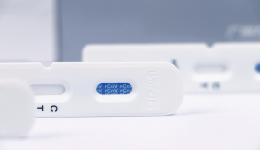 The first developed technology platform with various application scenarios, including infectious disease, fertility, DOA, etc.
The first developed technology platform with various application scenarios, including infectious disease, fertility, DOA, etc.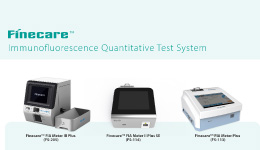 50+ kinds of reagents and five high-performance devices, focusing on detecting cardiovascular disease, inflammation, kidney injury, sex hormones, thyroid function, diabetes, tumor, and others.
50+ kinds of reagents and five high-performance devices, focusing on detecting cardiovascular disease, inflammation, kidney injury, sex hormones, thyroid function, diabetes, tumor, and others.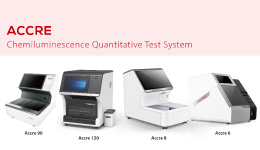 Single-dose Chemiluminescense Immunoassay Platform
Single-dose Chemiluminescense Immunoassay Platform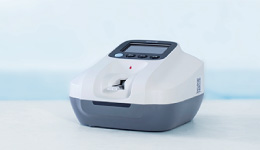 Wondfo optical blood coagulation analyzer is the first one in the world that can test PT, APTT, TT, FIB, and ACT simultaneously.
Wondfo optical blood coagulation analyzer is the first one in the world that can test PT, APTT, TT, FIB, and ACT simultaneously.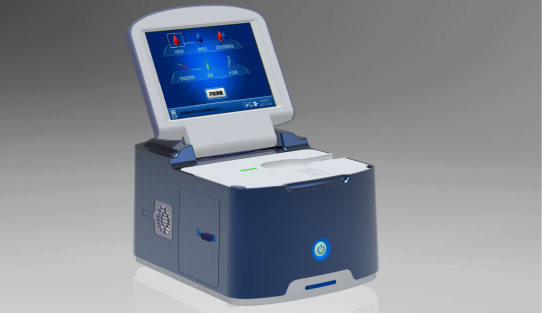 Our Blood Gas Analyzer BGA-102 can produce the result in 30s. Its advantages of portability, easy operation, durability, and high performance make it ideal for clinics, laboratories, and hospitals.
Our Blood Gas Analyzer BGA-102 can produce the result in 30s. Its advantages of portability, easy operation, durability, and high performance make it ideal for clinics, laboratories, and hospitals.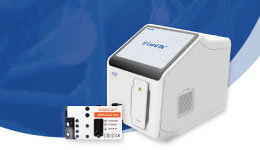 Ready-to-use lyophilized RT-PCR Reagent;
Ready-to-use lyophilized RT-PCR Reagent;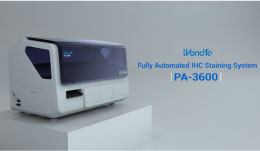 Wondfo PA-3600 IHC Staining System
Wondfo PA-3600 IHC Staining System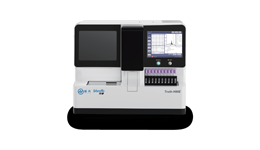 The Wondfo Truth-H80E HPLC Hemoglobin Analyzer is a high-performance diagnostic device designed for rapid and precise measurement of glycosylated hemoglobin (HbA1c)—the gold standard for diabetes diagnosis.It support the standard mode and variant mode and provide the result within 60-90seconds.
The Wondfo Truth-H80E HPLC Hemoglobin Analyzer is a high-performance diagnostic device designed for rapid and precise measurement of glycosylated hemoglobin (HbA1c)—the gold standard for diabetes diagnosis.It support the standard mode and variant mode and provide the result within 60-90seconds. This year, the summit will place a special focus on collaboration across different fields to explore the application of POCT and optimize clinical pathways. In the meantime, drive innovation by adoption of new technologies and biomarkers.
This year, the summit will place a special focus on collaboration across different fields to explore the application of POCT and optimize clinical pathways. In the meantime, drive innovation by adoption of new technologies and biomarkers.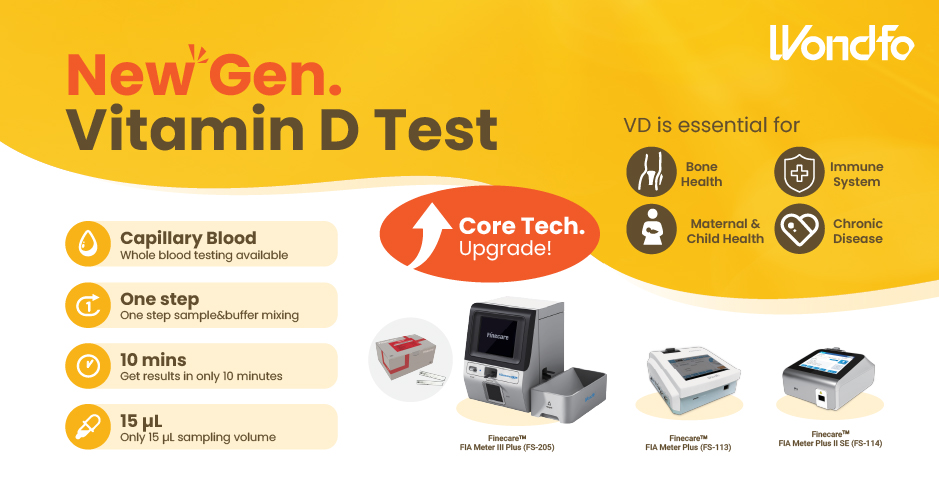 Finecare™ Vitamin D, from complexity to simplicity
Finecare™ Vitamin D, from complexity to simplicity Building A World Free from Antibitoic Overuse
Building A World Free from Antibitoic Overuse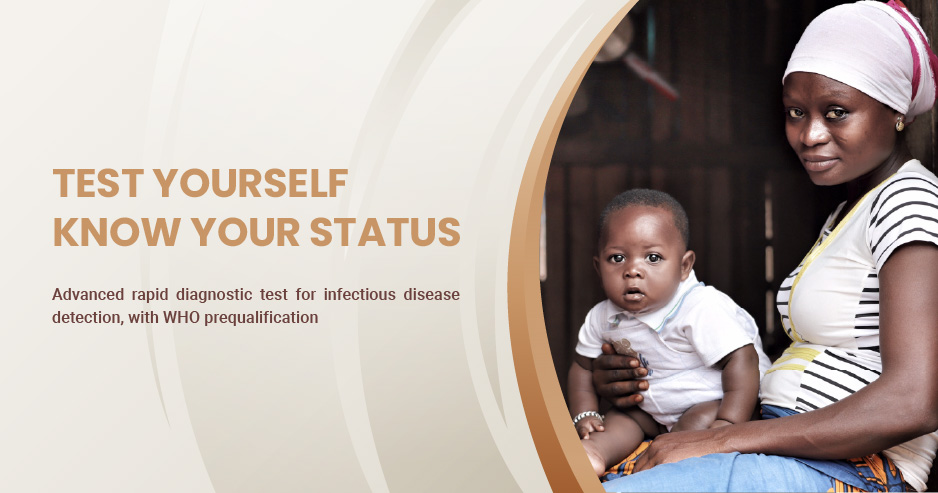 Advanced rapid diagnostic test with WHO prequalification for infectious disease
Advanced rapid diagnostic test with WHO prequalification for infectious disease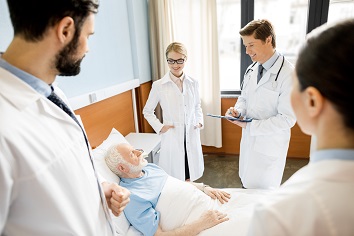 The Future Intelligent Medical Assistant to Healthcare
The Future Intelligent Medical Assistant to Healthcare Fight against the pandemic through continuous innovation
Fight against the pandemic through continuous innovation


















